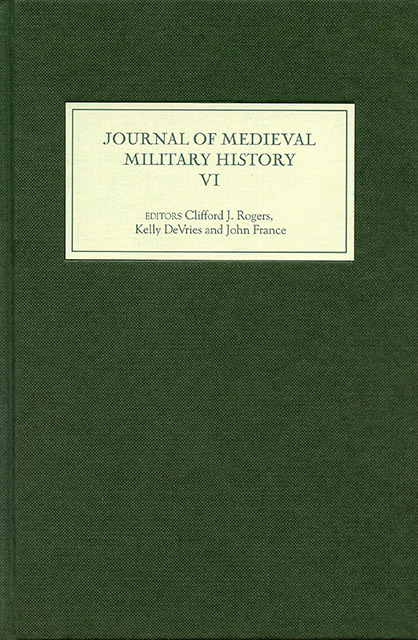Book contents
- Frontmatter
- Contents
- 1 Cultural Representation and the Practice of War in the Middle Ages
- 2 The Brevium Exempla as a Source for Carolingian Warhorses
- 3 Infantry and Cavalry in Lombardy (11th–12th Centuries)
- 4 Unintended Consumption: The Interruption of the Fourth Crusade at Venice and Its Consequences
- 5 Light Cavalry, Heavy Cavalry, Horse Archers, Oh My! What Abstract Definitions Don't Tell Us About 1205 Adrianople
- 6 War Financing in the Late-Medieval Crown of Aragon
- 7 National Reconciliation in France at the end of the Hundred Years War
1 - Cultural Representation and the Practice of War in the Middle Ages
Published online by Cambridge University Press: 10 March 2023
- Frontmatter
- Contents
- 1 Cultural Representation and the Practice of War in the Middle Ages
- 2 The Brevium Exempla as a Source for Carolingian Warhorses
- 3 Infantry and Cavalry in Lombardy (11th–12th Centuries)
- 4 Unintended Consumption: The Interruption of the Fourth Crusade at Venice and Its Consequences
- 5 Light Cavalry, Heavy Cavalry, Horse Archers, Oh My! What Abstract Definitions Don't Tell Us About 1205 Adrianople
- 6 War Financing in the Late-Medieval Crown of Aragon
- 7 National Reconciliation in France at the end of the Hundred Years War
Summary
Several years ago I was inspired by John Keegan's provocative book A History of Warfare (1993) to ask my students on their final exam to assess whether medieval warfare was “Clausewitzian.” Over the years this evolved into a much broader question that required the students to weigh the merits of two competing approaches to the study of medieval warfare. The version that appeared on last semester's final exam reads:
There are at least two ways of understanding the history of war. The first is a “scientific” model of war that emphasizes unchanging principles of strategic conduct and inherent military probability. According to this model, regardless of the era or society, war is a rational endeavor carried out according to tactical and strategic pragmatic necessities and directed at achieving the goals of a state. This approach also puts a priority on the material factors in war, in particular technological determinacy, and tests what the historical sources claim to have happened against what we know to be physiologically or technically possible, or, in some cases, militarily sensible. If the details recorded in even an authentic primary source fail this test, or stretch credibility, then they are to be rejected and material reality upheld.
Others contend that war is a cultural activity: the reasons why societies engage in war and the methods by which they fight them are defined by the particular norms, values, institutions, and mentalities of a society passed on from one generation to the next. What we call the “unchanging principles of war” are themselves a cultural construct derived from a particular approach to war and a particular organization of the state characteristic of the West from the late eighteenth century to the present. We may call this the “culturalist” approach.
The question: Assess the influence of culture, political policy, technology and practical military necessity upon why and how wars were fought in the Middle Ages. Which of the above interpretations do you think is more correct, and why? (You need not answer this as either/or. In the wars that you analyze you may find elements of each to be true.)
It probably comes as no shock that my own view underlies the concluding caveat. But if some unreasonable professor forced me to declare an allegiance, I would have to count myself a “culturalist.”
- Type
- Chapter
- Information
- Journal of Medieval Military HistoryVolume VI, pp. 1 - 31Publisher: Boydell & BrewerPrint publication year: 2008



